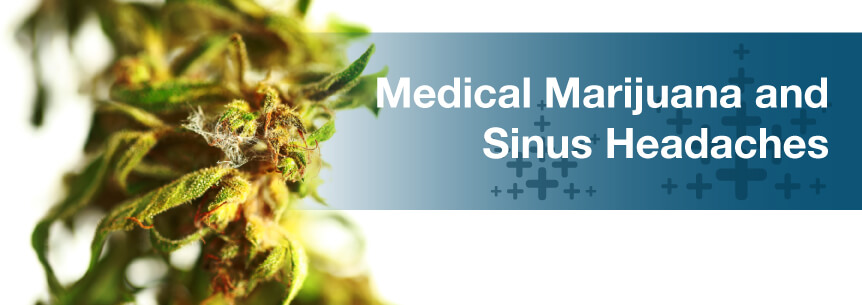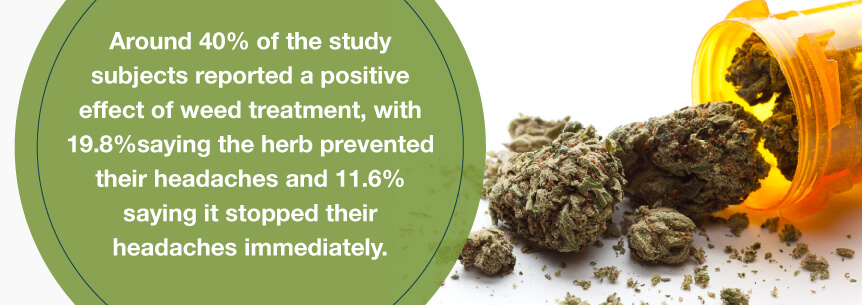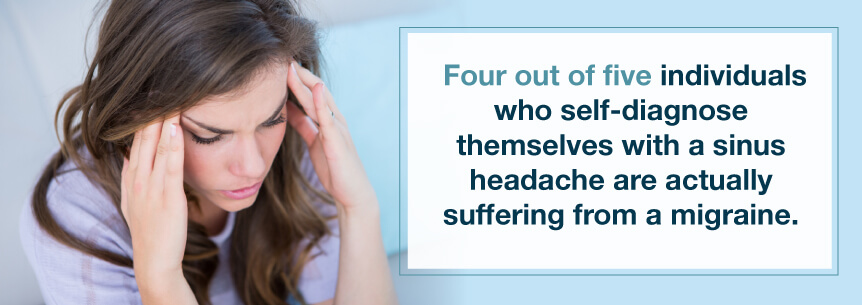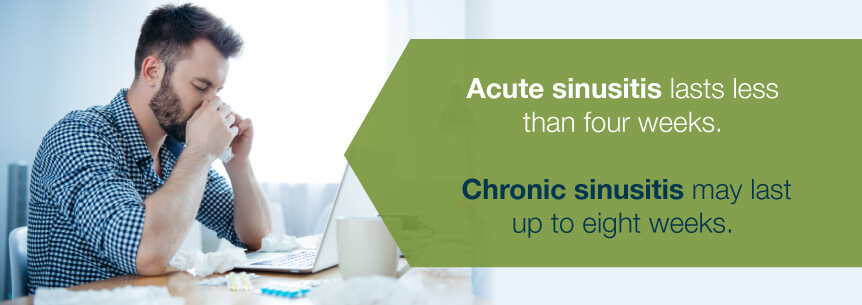
Many pain medications aren’t effective in relieving the discomfort from headaches, but when it comes to cannabis, this isn’t the case. People struggling with the most painful headaches are seeing beneficial results after using medical marijuana for sinus headaches.
As time goes on, medical cannabis is starting to become more relevant and is showing positive results in fighting a variety of conditions because of its anti-inflammatory properties and more. For instance, studies recently are showing compounds like cannabichromene, cannabigerol and tetrahydrocannabinol (THC) all have powerful anti-bacterial effects.
Because of this, medical weed may be a good therapeutic alternative to other standard treatments for combating infections, particularly those caused by bacteria resistant to antibiotics.
Find A Doctor Find A Dispensary
In addition to the sinus variety, several headache types all share one common symptom: pain. Examples include:
Those suffering from a headache can have pain lasting for hours — sometimes even days. As you’ve learned, headaches can also come with other unpleasant symptoms like nausea, vomiting and inflammation.
While individuals have long used marijuana for years to treat their headaches, only recently have researchers and scientist began exploring medical cannabis for sinus headaches and other headache disorders. The studies show a lot of promise in using medical pot to decrease the frequency of headaches, stop them in their tracks and even prevent them entirely.
The University of Colorado’s Skaggs School of Pharmacy and Pharmaceutical Sciences published an article in Pharmacotherapy’s May 2016 issue discussing a new study’s results on medical cannabis’s effects for both ingested and inhaled methods for treating headaches. The results concur with other anecdotal evidence.

Volunteers in the study reported having 4.6 headaches a month, down from their average 10.4 a month before the study. This led scientists to believe marijuana for sinus headaches can decrease headache frequency. Additionally, around 40 percent of the study subjects reported a positive effect of weed treatment, with 19.8 percent saying the herb prevented their headaches and 11.6 percent saying it stopped their headaches immediately.
Marijuana and sinus headaches treatment can address symptoms such as:
It also has anti-inflammatory and bronchodilator effects to open up the airways of individuals with sinus congestion.
Medical marijuana may offer you quick relief for sinus headaches due to its pain-killing properties. And, since the herb is already widely used to manage pain in cancer patients, you can rest assured it should be effective for sinus headaches. Medical weed also helps relieve other types of discomfort and pain sinus infections cause.
Knowing cannabis and sinus headaches treatment is useful, you may be wondering which strains are most beneficial for you. It’s a smart idea to consult with a medical cannabis doctor or experienced budtender first to get some recommendations, but you can also experiment on your own to find the strains that work well for your sinus headache symptoms.
To get you started, below is a list of cannabis strains shown to work well for three common sinusitis and sinus headache symptoms.
A couple strains with strong anti-inflammatory effects include:
These strains can help to open your airways up:
Good strains to treat your pain include:
There are three primary ways to ingest your medical marijuana for sinus headaches treatment:
Chronic pain is a qualifying condition for medical cannabis in many states. If you’re suffering from chronic sinus headaches, you should talk with a medical cannabis doctor to see if you could be eligible for medical marijuana.
Search for a medical marijuana dispensary or connect with a doctor today to begin your consultation and obtain your medical marijuana card. The sooner you get your recommendation and card, the sooner you can start feeling relief from your sinus headaches.
Find A Doctor Find A Dispensary
Sinus headaches result in a deep, throbbing and dull pain in your face and front of your head. Inflammation of your sinuses and your air-filled cavities surrounding your eyes, nose and cheeks causes them. Leaning over or bending down can typically worsen the pain, as does damp, chilly weather.
You’ll often get a sinus headache when you wake up in the morning, and sometimes they clear up by afternoon. They’re hard to diagnose since the symptoms are similar to those of migraines and tension headaches.

You may think headache pain accompanied by a runny or stuffy nose and watery, itchy eyes is a sinus headache, but what sounds like a sinus headache could be a migraine. In fact, WebMD reports four out of five individuals who self-diagnose themselves with a sinus headache are actually suffering from a migraine. This misconception is important to avoid since you can’t treat a sinus headache like a migraine.
You can classify sinus headaches as secondary headaches, which means there’s an underlying issue causing the headache. Unlike primary headaches, such as tension headaches and migraines, the best way to ease the pressure and alleviate the pain of a sinus headache is to treat the underlying problem.
Sinusitis — or sinus inflammation — is one cause of sinus headaches. There are two types of this condition:

Sinus headaches are often confused with other types of headaches even though they’re associated specifically with the congestion, swelling and an infection of your sinus cavities. However, tension headaches and migraines can also have symptoms involving the sinuses, which can be confusing. To relieve sinus headache pain, be sure you get an appropriate diagnosis so you can follow the right treatment method.
The history of headaches goes back as far as the Mesopotamian ritual texts from around 4000 years ago. Headaches were not seen as a symptom of different physical ailments back then, but as a spiritual entity. Scholars from various historical eras and cultures have helped us gain a better understanding of the pathophysiology, classification and treatment of headaches.
Even though the Ebers Papyrus from ancient Egyptians were the first recordings of the initial descriptions of neuralgias, headaches and migraines, Hippocrates classified headaches into several types and associated them with genuine physical, pathological conditions. After this, surgical treatments for headaches began to evolve throughout history.
A sinus headache can cause a continuous, deep pain in your forehead, cheekbones and bridge of your nose. Suddenly moving or straining your head can make the pain worse and create other sinus-type symptoms like fever, nasal discharge, facial swelling and sensation of fullness in your ears.
Your physician should be the one to determine if your headache symptoms are associated with a sinus issue. If a sinus blockage is causing your headache, you may also have a fever. To identify sinus blockage, your doctor may order an MRI or CT scan and perform a thorough physical exam.
The following symptoms are typically linked to sinus headaches:
A sinus headache often feels worse when you also have nasal congestion. The location of your pain depends on which sinus is affected. Potential areas include:
Although uncommon, you may have complications around your eyes leading to the area that’s becoming inflamed and swollen — this could even affect your vision. For instance, you may experience double or blurry vision, impaired eye movements, swollen eyelids or red eyes.
Although sinus headaches seem harmless enough, they could lead to something worse. Therefore, if you’re experiencing rattling in your chest, discolored nasal discharge, trouble breathing or a persistent high fever, see your doctor so they can determine the cause.
Nerve inflammation and decreased oxygen saturation may also cause headaches. Your doctor could come up with a diagnosis after finding these two causes inside your nasal cavity.
Some people develop obstructive sleep apnea (OSA) due to contributing factors like inferior turbinate hypertrophy and septal deviation. If you can’t breathe properly during the night, it could cause multiple or prolonged decreases in oxygen saturation, leading to a morning headache.
Having a congested nose lasting for several months will make anyone feel down. But, depression can affect as many as 25 percent of individuals with long-term sinus inflammation or sinusitis that leads to constant sinus headaches. Even what’s considered just a minor nuisance can cause a lot of distress in certain individuals.
Many individuals suffering from sinus inflammation will say it’s not just a minor nuisance. If their sinus headaches are due to chronic sinusitis, they are likely suffering from:
All these chronic symptoms can either trigger depression or make it worse due to:

As we mentioned earlier, scientists and researchers have helped us learn a lot about sinus headaches throughout the years. According to the American Academy of Allergy Asthma & Immunology:
Treating sinus headaches and the associated pain starts with determining the underlying cause. For instance, antihistamines and nasal decongestants often work better for allergy-related sinus headaches. But, a physician should review these types of treatments since they could aggravate other medical problems like hypertension.
Modern sinus headache treatments include the following four options:
These sprays can relieve sinus congestion and reduce the swelling in your nose when allergies or infections cause your sinus headaches. Side effects of nasal steroid sprays may include:
Antibiotics can treat bacterial infection-related sinus headaches. Side effects of antibiotics may include:
Medical cannabis can help treat all the above medication-related side effects.
Irrigating your sinuses and nose, as well as increasing air humidity, can help you relieve a sinus headache. Sterile saline sinus irrigations typically work well.
If a chronic sinus disease is causing your sinus headaches, you may need surgery. The surgeon will perform an outpatient procedure where they get rid of the diseased and infected sinus tissue, then restore your sinus drainage back to normal. Side effects of nasal surgery may include:
If you’re experiencing symptoms of sinus pain or a sinus headache, it’s crucial to consult with your physician to determine the underlying cause. They may refer you to a neurologist or ear, nose and throat (ENT) specialist if your sinus headaches are difficult to treat.